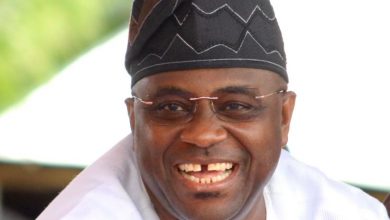Women In Politics: Udom’s Magnanimity
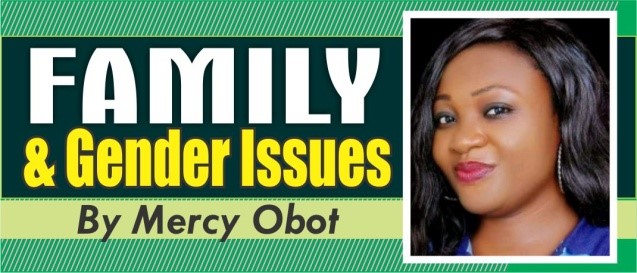
Recently, the rate of women’s representation in politics is gradually gaining momentum in Akwa Ibom as the state governor, Mr Udom Emmanuel, appoints more women into the State Executive Council.
The opportunity that the present dispensation has created is radiating a growth of recognition among the women in the state. This is indeed an applaudable development that is worth emulating from other state governors in Nigeria.

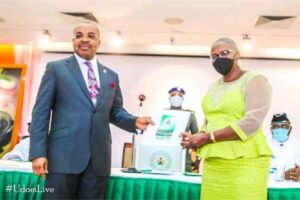
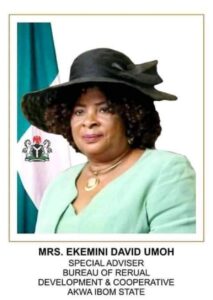
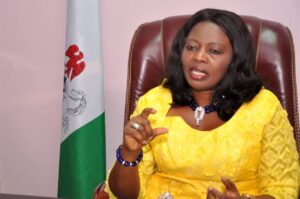
On August 3, 2020, two female commissioners were sworn into the State Executive Council. They were Dr. Ini Adiakpan (Ministry of Women Affairs and Social Welfare) and Mrs Enobong Mbobo (Ministry of Education).
This brings to four the number of females in the State Executive Council with Dr Glory Edet (Ministry of Agriculture) and) Mrs Ekemini Umoh (Bureau of Rural Development and Cooperative) who were already in the state exco.
Related: Women and Power: How Ready Are They?
Indeed, it is of certainty that the governor’s Completion Agenda will gracefully be actualized because when credible women are on board, there is bound to be robust development in the state politics and economy.
Sandra Pepera, director for gender, Women and Democracy, asserted to this when she said that “Women’s political participation results in tangible gains for democracy, including greater responsiveness to citizens’ needs, increased cooperation across party and ethnic lines, and a more sustainable future.”
Emily God’s Presence also opined that “Despite the fact that women have not yet been given the opportunity to be presidents, vice presidents or governors, women are determinedly, gradually and systematically taking their place in the society, making their presence known in whatever small capacity they find themselves by showing their worth through their numerous achievements.”
She also hinted catalogue of Nigerian women who have contributed to national development which include Fidelia Njezie (former minister of aviation), who only in a short while exploited her ingenuity to resuscitate the aviation sector from its collapsing state; Hajia Ruqayyatu A. Ruffai, former minister of education, who gave education a new dimension; Farida Waziri, the boss of Economic and Financial Crimes Commission (EFCC) up until 2011 brought sanity to the body polity of the nation by exposing some corrupt leaders to justice.
She also mentioned late Professor Dora Akunyili, former director-general of National Agency for Food and Drugs Administration and Control (NAFDAC), who made sure that the proliferation of illicit and expired drugs were curtailed, thereby saving lives and health of innocent citizens.
In Akwa lbom State, one of such women is Hon. (Dr.) Glory Edet, even though she was saddled with two offices (Women Affairs, and Social Welfare as well as Agriculture), she was applauded for discharging her responsibilities appropriately and efficiently.
Her industrious spirit must have served her another seat in the Gov. Emmanuel’s cabinet and her focus towards work must have encouraged the governor in considering more women to join the State Executive Council.
At present, Governor Emmanuel’s administration has also supported the party to encourage women to participate in the forthcoming local government elections by making the PDP nomination forms to be affordable for women to purchase.
During the Peoples Democratic Party resolution, the governor also made a deliberate attempt in ensuring that all interests were accommodated during the conduct of the congress on March 7, 2020.
The party resolved that stakeholders at local government and state levels should ensure that at the ward level, out of 17 EXCO members, six must be women; at local government level, out of 18 EXCO members, six must be women; at state level, out of 39, 13 must be women; at the zonal level, out of 12 EXCO members, four must be women; while the 19 National Working Committee members will also comprise of six women.
Unfortunately, there were enormous conflicts in most local governments regarding the appointment of women into the political arena of their respective communities; this is because of their poor perception of women being incapable of contributing to the state development.
However, this has not deterred the state government from appointing more women into the political empires to effectively represent more women in both the urban and rural communities.
Although the female appointments in the state are below the 35 per cent benchmark often identified as the necessary level of representation to achieve a “critical mass”, women are still hopeful that this is the beginning of better days to come.
It is imperative to note that the full and equitable participation of women in public life is essential to building and sustaining strong, vibrant democracies. If more women are allowed into the political system, Nigeria is ready to scale from being a developing nation to a developed one. She is also expected to gain her rightful place as the Giant of Africa.
Until this revelation has been fully unfolded, we hope that the women appointed will not fall short of glory and we solely believe they will create a legacy that will spur more women into the political empires.



